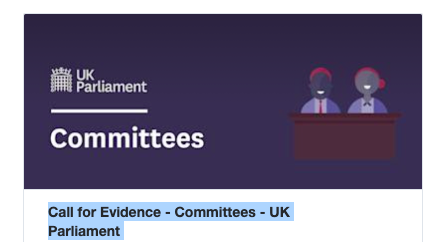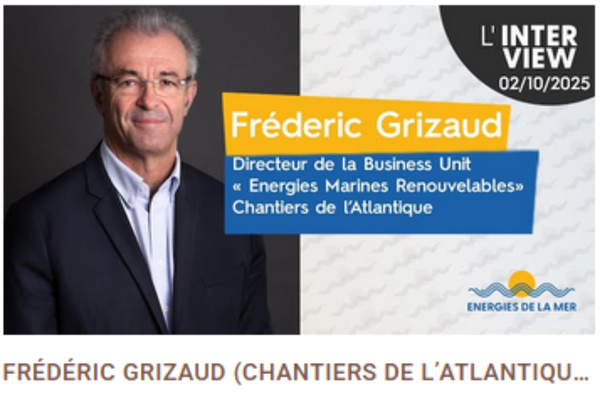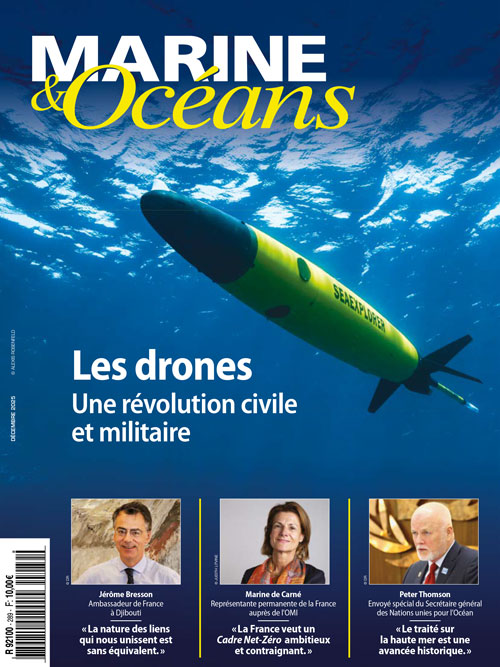Royaume-Uni – 22/10/2021 – energiesdelamer.eu. UNCLOS: fit for purpose in the 21st century? Mise à jour ? Le Royaume-Uni lance un « Appel à contribution par l’intermédiaire du Parlement britannique » pour savoir si la ‘Constitution de la mer’ ne doit pas être révisée pour mieux servir la politique des océans du Royaume ….
About 71 percent of the Earth’s surface is covered with water, with around 96 percent held in oceans, and around 80 percent of the volume of international trade in goods is carried by sea. Experts point out that the seas “have always been a source of power and wealth”, and nations have had to navigate through their ambitions to set clear maritime boundaries, while at the same time maintain an open transit and transport system for everyone.[1]
The UN Convention on the Law of the Sea (UNCLOS) was signed in 1982 and came into force in 1994. It is frequently labelled the ‘Constitution of the Oceans’ and is a framework agreement.
In December 2020, at the 75 session of the UN General Assembly, the Government stated that UNCLOS is “a critical part of the rules-based international system” and that the UK is “fully committed to upholding its rules and securing the implementation of its rights and obligations.”[2] The UK’s statement reaffirmed the Government’s support for the legal framework for maritime claims[3] and the rules of freedom of navigation and its application around the world (with explicit reference to the South China Sea).[4]
The Committee’s inquiry will explore the extent to which UNCLOS remains fit for purpose, the challenges facing its enforcement in 2021, and the extent to which the framework continues to reflect and uphold the UK’s interests. The inquiry will focus on issues of security, defence, climate change and international co-operation.
The call for evidence
The Committee is calling for written evidence on the questions below. The Committee will use the written evidence received to further shape its inquiry.
You do not need to answer all the questions to make a submission.
Diversity comes in many forms and hearing a range of different perspectives means that committees are better informed and can more effectively scrutinise public policy and legislation. Committees can undertake their role most effectively when they hear from a wide range of individuals, sectors or groups in society affected by a particular policy or piece of legislation. We encourage anyone with experience or expertise of an issue under investigation by a select committee to share their views with the committee, with the full knowledge that their views have value and are welcome.
General
- What have been the main successes and accomplishments of UNCLOS over the past 40 years?
- Which countries are the key international actors influencing the international law of the sea? What are their approaches towards UNCLOS?
- How is UNCLOS enforced and how successful is its enforcement? How successful is dispute resolution under UNCLOS?
- What are the other important international agreements and treaties which complement UNCLOS?
- What is the role of the International Maritime Organisation (IMO) and other international organisations in developing UNCLOS and the law of the sea?
Challenges
- What are the main challenges facing the effective implementation of UNCLOS in 2021? We would particularly welcome responses on:
- Climate change and the impact it has had/will have on the structures and provisions of UNCLOS (including trading routes, maritime boundaries, and the status of island ocean states)
- Maritime security and human rights at sea (including migration, modern slavery and human trafficking)
- Autonomous maritime vehicles (both commercial and military), cybersecurity, and other new technologies
- Regulation of access to economic resources, including on the deep seabed and in the water column, fishing, and the protection of resources such as undersea cables
- In light of these challenges, is UNCLOS still fit for purpose? Can or should UNCLOS be renegotiated to better address these challenges?
UK’s Maritime Strategy
- What is your assessment of the UK’s policy and practice within the current legal framework of the international law of the sea? Are the Government currently working to address any of the challenges outlined above?
- What should be the priorities for the UK Government regarding the future of UNCLOS and the international law of the sea? In what areas can or should the UK be a leader?
- What will be the most important international partnerships and alliances for the UK in addressing these challenges and upholding its interests with regards to the law of the sea?
- In light of the challenges posed by climate change to the provisions of UNCLOS, what considerations should be given to the law of the sea during and after COP26, and what should be the position of the UK Government?
[1] Evans, M., Galani, S., (eds.), Maritime Security and the Law of the Sea. Help or Hindrance?, Elgar, 2020
[2] https://www.gov.uk/government/speeches/upholding-the-un-convention-on-the-law-of-the-sea
[3] https://www.un.org/depts/los/LEGISLATIONANDTREATIES/claims.htm
[4] https://www.gov.uk/government/speeches/upholding-the-un-convention-on-the-law-of-the-sea
ANNEX: GUIDANCE FOR SUBMISSIONS
Submissions should be made through the online form at: https://committees.parliament.uk/submission/#/evidence/602/preamble
Please bring this document to the attention of groups and individuals who may not have received a copy direct, including those who have not previously engaged with Parliament.
The deadline for making a written submission is 23.59 on Friday 12 November 2021.
Concise submissions are preferred. A submission longer than six pages should include a one-page summary. Paragraphs should be numbered. All submissions made through the written submission form will be acknowledged automatically by email.
Submissions which are accepted by the committee as written evidence may be published online at any stage. When it is published as written evidence a submission becomes subject to parliamentary copyright and is protected by parliamentary privilege. Submissions which have been previously published will not be accepted as evidence.
Once your submission has been accepted as evidence you will be notified by a further email, and at this point you may publicise or publish it yourself. In doing so you must indicate that it was prepared for the committee, and you should be aware that your publication or re-publication of your evidence may not be protected by parliamentary privilege.
Personal contact details will be removed from evidence before publication, but will be retained by the Committee Office and may used for specific purposes relating to the committee’s work—for instance to seek additional information.
The committee may invite individuals and groups who have submitted written evidence, as well as others, to answer questions in a public session. These oral evidence sessions are usually held in Westminster but currently take place virtually due to the Covid-19 pandemic. They are broadcast online and transcripts are also taken and published.
Substantive communications to the committee about the inquiry should be addressed to the clerk of the committee, whether or not they are intended to constitute a formal written submission.
Start https://committees.parliament.uk/submission/#/evidence/602/preamble
Information transmise par Yves Henocque – LittOcean
POINTS DE REPÈRE
Convention signé à Montego Bay en 1982
Publicités Google :









